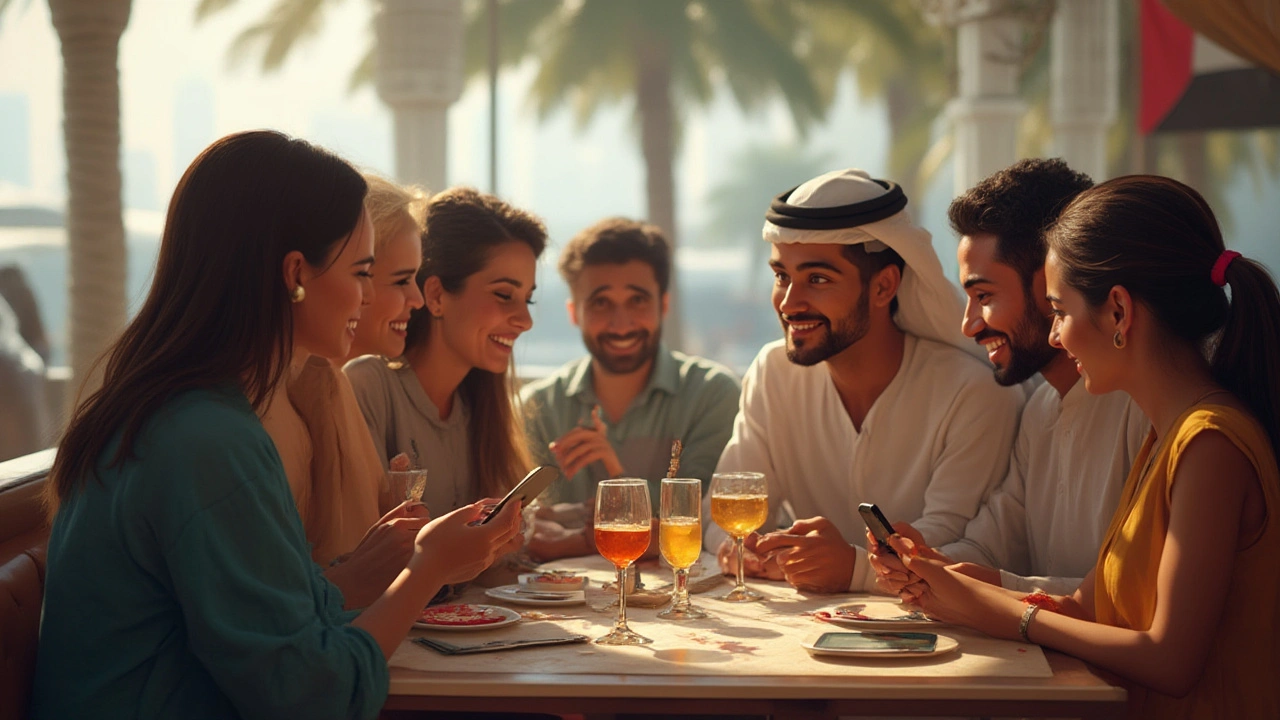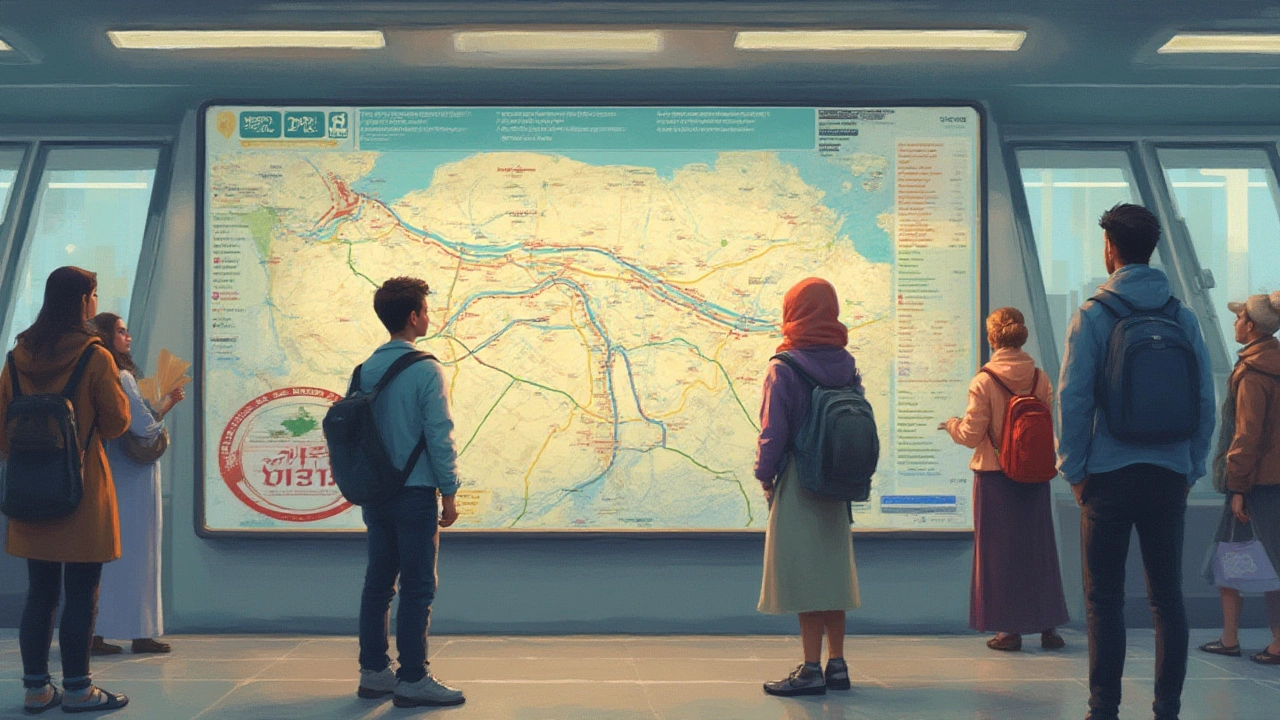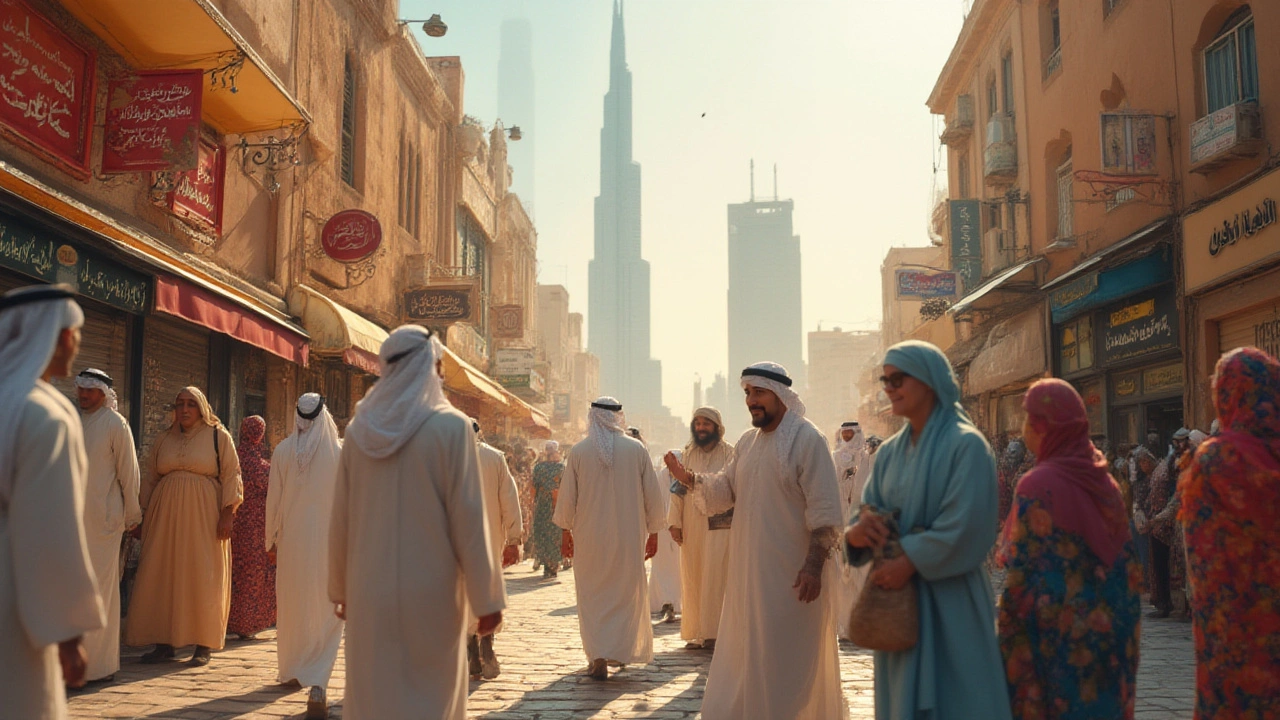Ever landed in Dubai’s airport and been instantly buzzed by the melodic chaos of languages swirling around you? It’s a city where you can bump into someone from Manila in a supermarket aisle, overhear Russian on Jumeirah Beach, and finish your coffee listening to an Egyptian radio DJ flirting with expat-friendly English pop. Dubai’s language scene is wild and layered, packed with small surprises and big contradictions, and it’s all a lot more interesting than just a simple “Arabic is the main language, next question.”
The Official Language: Arabic, But Not Alone
Arabic is the official language of Dubai and the wider United Arab Emirates. You’ll see it everywhere: on government buildings, public signs, legal paperwork, news, and in most conversations among Emiratis. Modern Standard Arabic is the formal version taught in schools—this is what you’ll see in newspapers, at the theater during formal speeches, and engraved in marble on national monuments. But the Arabic spoken on the streets—especially in Dubai—is Emirati Arabic, a local Gulf dialect that mixes Bedouin roots with the UAE’s own flavor. And honestly, it’s different from the Arabic you’d hear in Morocco, Syria, or Egypt. Even native speakers sometimes pause and laugh with, ‘Wait, what do you call that here?’
Here’s the fun twist: Less than 10% of Dubai’s population is Emirati. Most people living and working here are expats, many of them not even speakers of Arabic. So yes, it’s the official tongue, and for legal or governmental matters—or when you eavesdrop on the old men at a shisha café—Arabic rules. However, don’t be shocked if you walk through entire neighborhoods without hearing a word of it.
For those who want to pick up basic phrases, it’s handy to know words like “Shukran” (thank you), “Marhaba” (hello), and “Ma’assalama” (goodbye). But unless you’re specifically working with Emiratis or diving into local culture, most people can get by with no Arabic at all. This isn’t Paris—no one will roll their eyes if you ask, ‘Do you speak English?’
The Real Language of Conversation: English Everywhere
Here’s the ground truth: English is the language everyone in Dubai actually uses day to day. Step into a mall, taxi, hotel, school, bank, or even a local coffee shop, and the conversation will almost always default to English. Official forms, restaurant menus, building directories—all are in English. Even government services and medical care operate bilingually. It’s the common bridge that keeps this wild, multicultural experiment humming along.
Dubai didn’t land here by accident. Back in the ‘60s and ‘70s, as the city exploded with oil money and imported workers, it became obvious that a universal language was needed. English was already on the rise globally, and plenty of the early business was done with British and American partners. By the ‘80s, English had cemented itself as the city’s lingua franca—not just for commerce, but for nearly everything else, too.
School children from all walks of life—British, Indian, Pakistani, Filipino, Russian, Iranian, Egyptian, Sudanese—learn English alongside their native tongues. There’s an entire media ecosystem: The National, Gulf News, Time Out Dubai, even local cable TV and radio, deliver news and entertainment in English. Many Emiratis themselves switch effortlessly between Arabic and a globalized, inflected, Dubai-flavored English that you’ll recognize on YouTube or social feeds.
If you’re moving here or visiting for a week, don’t sweat the Arabic lessons unless you want to impress. Every cab driver, waiter, government official, and even strangers in lifts will understand you if you speak English—sometimes better than each other.

A True Melting Pot: The Top Languages You’ll Hear Around Town
Dubai’s population is almost 90% expat, and the past few decades have drawn millions from South Asia, the Philippines, Africa, Europe, and beyond. It means you’ll find entire neighborhoods and social circles that operate in languages other than Arabic or English. Here’s a breakdown of what you’ll likely hear:
| Language | Where You’ll Hear It | Who Speaks It |
|---|---|---|
| Hindi & Urdu | Markets, construction sites, Little India, taxis | Indian and Pakistani workers, business owners |
| Tagalog (Filipino) | Malls, cafes, beauty salons, hospitals | Filipino expats, nurses, staff |
| Russian | Luxury real estate, Jumeirah Beach, tourism services | Russian expat community, tourists |
| Persian (Farsi) | Older Dubai, Deira, gold souks | Iranians, Persian business families |
| Bengali | Street food shops, construction | Bengali labor force |
Depending on your taxi driver, you might be greeted with “Namaste,” “Salam,” or “How are you, friend?” Shopping at the supermarket, listen out for chats in Malayalam or Tamil among the aisle staff. On the metro, you’ll spot clusters of Filipino nurses switching swiftly between English and Tagalog. Even customer menus in fast food spots like Jollibee or chaat stalls in Bur Dubai display multiple language options.
Celebrations and community events paint this picture even more colorfully. Eid, Diwali, Russian New Year, and the Filipino Barrio Fiesta each fill distinct corners of the city with their own sounds and slogans. This is Dubai’s norm: a rhythm of polyglot conversation, multi-lingual advertising, and entire radio stations tailored to every nationality you can imagine.
Why Language Matters: Work, Play, and Culture in Dubai
Multilingualism shapes almost everything about life and work in Dubai. For example, want a job in hospitality, aviation, retail, or customer service? You pretty much need to know decent English, and often Hindi or Tagalog is a huge bonus. Employers regularly post job ads asking, ‘English + Arabic + one additional language preferred’—the more, the merrier.
In social life, language is its own kind of shortcut. When you hear someone greeting you in your mother tongue—whether it’s a security guard shouting “Aap kaise ho?” at a new resident, or a Filipino hairdresser saying “Kumusta?”—it’s immediate magic. It breaks walls, makes the city feel welcoming, and helps knit together a patchwork of cultures into something that somehow just works.
Schools are another story: International schools in Dubai offer classes in British English or American English, Russian, French, German, and more. Plenty of kids pop up fluent in three, sometimes four languages before they even hit high school. It’s a city where being ‘just’ bilingual is almost boring, and dinner parties can start with Farsi jokes and end with Bollywood karaoke.
- If you’re a newbie, apps like Duolingo or Memrise can help you pick up the basics of Arabic—handy for the nuances of local names or food orders.
- Don’t panic if your accent is odd. If you can be polite, clear, and smile your way through, Dubai is super forgiving—everyone’s language is a work in progress.
- Look for opportunities to join language exchange groups or community classes. There are regular ‘language cafes’ around town, especially in creative hubs like Alserkal Avenue or downtown coworking spaces.

Practical Tips: Understanding Language in Daily Dubai Life
Getting around Dubai without knowing any Arabic is genuinely easy. All street signs, public instructions, taxi apps, and metro announcements are in both Arabic and English. If you’re driving, expect road names to be written in both scripts—sometimes creatively transliterated. Supermarkets, shops, and restaurants display menus with glossy English translations—and if they don’t, just ask. Most staff are multilingual, or at the very least, speak some English.
Renting an apartment? Leases and contracts are always provided in dual language. Want to handle legal stuff? English versions of forms are everywhere. Shopping at the gold souk or a tiny electronics stall? The owner will size up which lingo you speak from two words and respond accordingly.
Emergency services? Dial 999—switch to English immediately. Hospitals cater in both languages, and most doctors and nurses are fluent in English. Whether you end up in a luxury private clinic or a government hospital, you’ll be understood. Pharmacies, police, banks, and even the post office have staff trained in multiple languages. It’s a level of convenience most global cities would kill for.
- Don’t be shy: If you’re lost or confused, asking for directions in English always works. Dubai’s people are used to giving step-by-step help to people from every corner of the world.
- If you need translation help for a specific issue, ask at your hotel desk or try the ‘DubaiNow’ app, which covers basically everything from paying bills to reporting lost luggage—in English, of course.
- Want to understand street banter? Learn some basic Hindi greetings (“Namaste,” “Kaise ho?”), Tagalog (“Salamat,” “Magandang araw”), or Russian (“Privet!”). It’ll open doors, and win smiles everywhere.
Just a small word of warning: A little knowledge of the local culture does go a long way. Try not to be too surprised if someone’s English is, well, not the Queen’s. Dubai’s English is a living thing—full of borrowed expressions, new slang, and the quirks of teachers from as far apart as Johannesburg and Delhi. You’ll quickly get used to ‘Dubai English’, and soon find yourself dropping words like ‘Inshallah’ (God willing) and ‘Yalla’ (let’s go) without even trying.
And if you do want to practice Arabic, there’s no shortage of language partners. Just a heads-up: Emiratis love it when foreigners give Arabic a go, and will bend over backward to help. Their patience and joy at hearing you say even one honest ‘Shukran’ is pretty adorable. The city welcomes effort, not perfection.
Escort Dubai